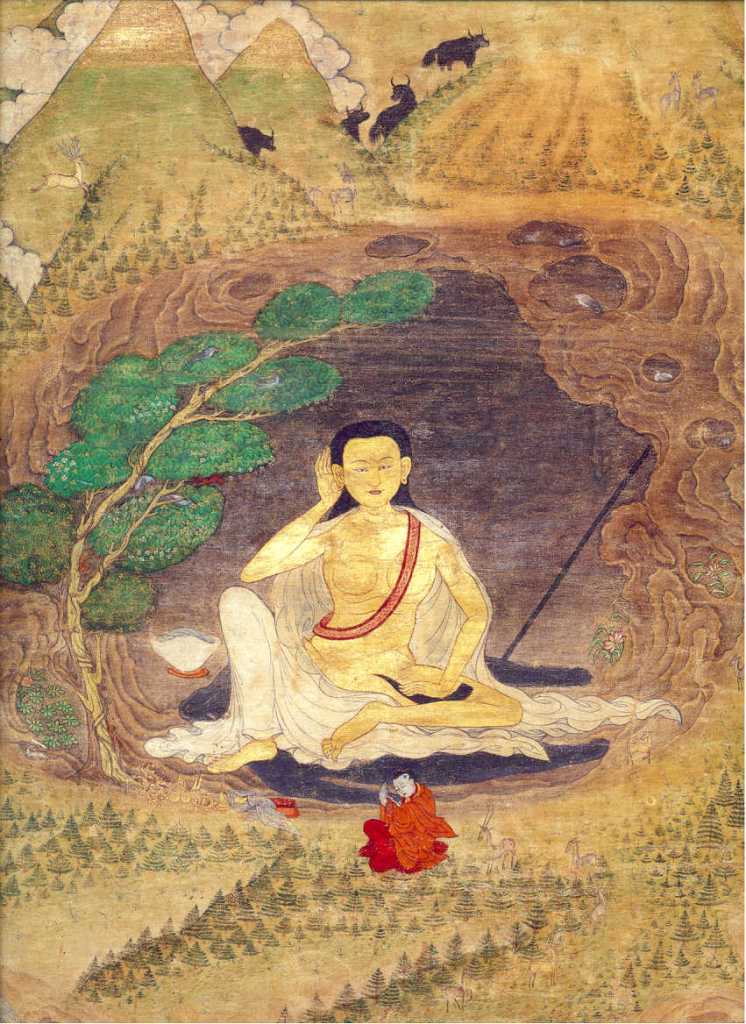 |
| Gampopa |
I just had the great pleasure of teaching a weekend retreat sponsored by Lion's Roar magazine at the Garrison Institute in New York, called "Facing Life's Difficulties" with Patricia Mushim Ikeda and Lama Justin von Bujdoss. I was inspired by my fellow teachers and all the participants, and in particular by Lama Justin's instructions from his lineage ancestor Gampopa, who lived in the 12th century in Tibet.
All of us struggle at some point with difficulties, stress, painful emotions, suffering, the unwanted, grief, and more. I usually invite people to practice with these states, using words like "meeting," "facing," "being with," or "being free in the midst of." Lama Justin quoted Gampopa as suggesting the word "resting." I don't know what this translates from Tibetan, but when I heard "resting" as a guidance, my heart settled quickly.
For me, these days, challenges come from everywhere: in the global situation, personally, and everything in between. To find rest in the middle of all of it aligns intimately with my understanding of what Dharma practice has to offer. We are taught from a young age to "avoid" and "transform" -- the two other words Gampopa uses, which I usually talk about as "flight" or "turning away" and "fight" or "fixing." Although they may sound negative, both of these tried and true coping mechanisms can be used positively. If I am in physical, emotional or cognitive pain I can first try to ignore it, to turn away from it. Maybe I can imagine a place where I am safe, some resource of protection, or I can play music, take a walk, phone a friend. Avoiding only works for a short time, but it can be effective, and we all know how to do it. Transforming, or fighting and fixing, is also effective in dealing with distress. Although it can be a little more work, the effects appear to last longer than avoiding. We can take medication, make a plan to change something, organize to help others and ourselves.
But resting in the distress is something else altogether. From the great practice of sitting upright in the middle of whatever comes during our meditation practice, we learn to intimately encounter what is right here, whether we like it or not. As Eihei Dogen teaches us, "flowers fall though we love them; weeds grow though we hate them. This is just how it is." Being with what is, resting in the middle of our distress, allows a softening and transforming that is not easy to do, but that has effects that can last a lifetime.
Resting, right here, right now, no matter what is happening. Please enjoy this gift from Lama Justin and Gampopa.


No comments:
Post a Comment